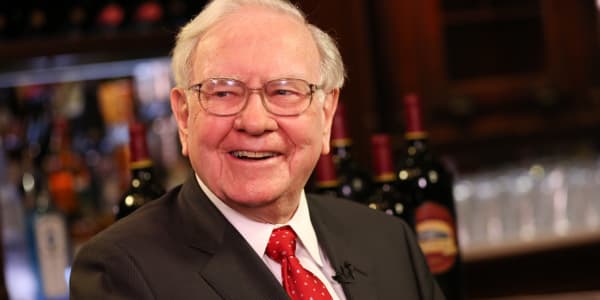Markets have certainly delivered volatility lately, but have funds designed to protect investors from volatility delivered?
The answer depends on the fund, with short-term ones generally outperforming long-term ones, analysts say.
These funds, which grew in popularity after the global financial crisis in 2007-2008, apply different strategies to shield investors from heightened market volatility. Some are aimed at reacting quickly to short-term market moves, while others are geared at providing protection against sustained volatility.
(Read more: 'Broken market'? Why there's more trouble ahead)
"The short-term focused products have done reasonably well," said Brook Sweeney, senior research analyst at Morningstar in Australia, referring to the recent turbulence in global financial markets triggered by expectations for an unwinding of U.S. monetary stimulus.
"The longer-term ones haven't done as well because markets have moved relatively quickly," he added. "A lot of these products were designed with 2008 in mind, with a continued period of volatility. But when there's a period of short-term volatility in the market, they aren't moving quickly enough and they get caught."
Sweeney cites the longer-term focused Invesco Balanced-Risk Allocation Fund, which invests in equities, bonds and commodities, as an example.
(Read more: Market 'beat down' not over yet. Cramer says)
It took a hit from the Federal Reserve taper talk in May and June. In the June quarter, the various share classes in the fund fell around 5.5 percent, compared with a 0.5 percent fall in Invesco's benchmark Custom Balanced Risk Allocation Index, according to data from Invesco's website.
At the end of June, the benchmark was up 10.6 percent for the previous 12 months, compared with a gain of about 2 percent in the Balanced -Risk Allocation Fund.

"It would take weakness in two of the three broad asset classes for this fund to suffer. The lack of correlation protects against this event," Sweeney said. But the market's "risk-on, risk-off" behavior, which causes many assets to move together, "has been playing havoc with the process."
Invesco did not immediately respond to an emailed request for a comment.
Among the funds with a shorter-term focus, the Lyxor Absolute Return Multi Assets funds are performing in line with their targets, said Jessie Zhang, head of business development for Greater China and Southeast Asia for Lyxor Asset Management, which has around $100 billion under management.
(Read more: Trading will get crazy! 3 ways to stay sane: Pro)
Its Absolute Return Multi Assets 8 fund is up 4.86 percent year-to-date, while the more conservative Absolute Return Multi Assets fund is up 1.77 percent, compared with their cash plus 5.0 percent and 2.0 percent targets respectively, Zhang said, attributing the gains in the funds to a "nimble" approach.
Some "plain-vanilla" strategies, more available to smaller investors, have seen some outperformance.
Among U.S.-listed exchange traded funds (ETFs) focused on emerging markets, the iShares MSCI Emerging Markets Minimum Volatility ETF and the S&P Emerging Markets Low Volatility Portfolio are each down around 8 percent so far this year.
But that compares with the related funds' unprotected shares, and the SPDR S&P Emerging Markets ETF's, which have fallen between 11.3-13.2 percent this year.
(Read more: Traders beware: Six weeks of intense volatility ahead)
The two low volatility funds, which hold far fewer shares than the index funds, also offer lower expense ratios of 0.25-0.29 percent, compared with their unprotected peers' 0.59-0.67 percent.
Despite the segment's mixed performance over the summer, some wealth managers may continue to recommend the funds to clients. Christopher Wong, an investment advisory manager at Nomura, said he will probably recommend these funds to clients, especially for larger portfolios. "There are still bouts of uncertainty," he said.
—By CNBC.Com's Leslie Shaffer; Follow her on Twitter: @LeslieShaffer1



